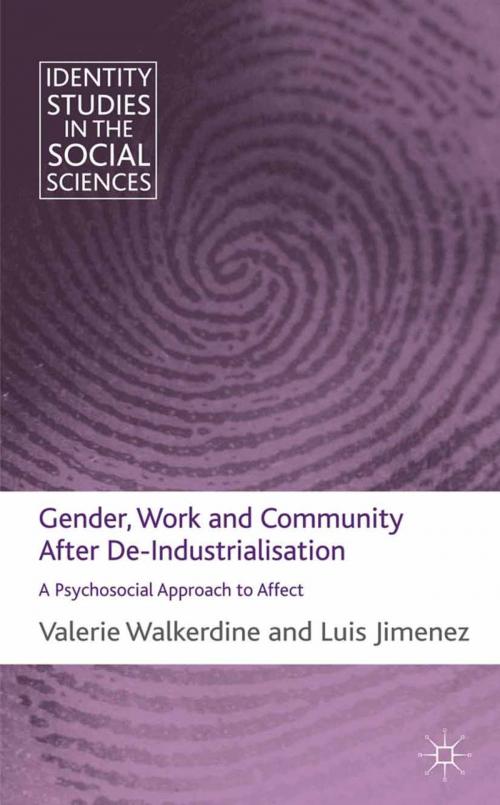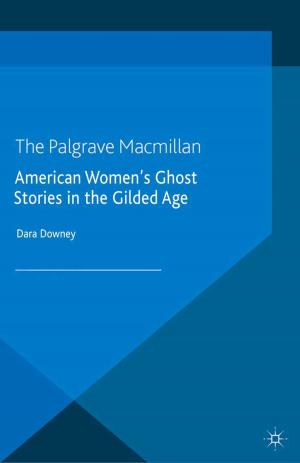Gender, Work and Community After De-Industrialisation
A Psychosocial Approach to Affect
Nonfiction, Social & Cultural Studies, Social Science, Sociology, Urban| Author: | V. Walkerdine, L. Jimenez | ISBN: | 9780230359192 |
| Publisher: | Palgrave Macmillan UK | Publication: | January 17, 2012 |
| Imprint: | Palgrave Macmillan | Language: | English |
| Author: | V. Walkerdine, L. Jimenez |
| ISBN: | 9780230359192 |
| Publisher: | Palgrave Macmillan UK |
| Publication: | January 17, 2012 |
| Imprint: | Palgrave Macmillan |
| Language: | English |
How does an industrial community cope when they are told that closure is inevitable? What if this is only the last in a 200 year long line of threats, insecurities and closure? How did people weather the storms and how do they face the future now? While attempts to regenerate communities are everywhere, we do not often hear from the people themselves just how they managed to create safe collective spaces or how the fall of the whole house of cards brought with it effects which can be felt by young people who never knew the town when it was an industrial heartland. We hear the story of how men and women tried to cope and still want to retain their community in the face of its destruction. What can they and will they have to pass to the next generation and where will that leave the young people themselves, who have nothing to stay for but are unable to leave? This book examines these crucial questions facing post-industrial societies.
How does an industrial community cope when they are told that closure is inevitable? What if this is only the last in a 200 year long line of threats, insecurities and closure? How did people weather the storms and how do they face the future now? While attempts to regenerate communities are everywhere, we do not often hear from the people themselves just how they managed to create safe collective spaces or how the fall of the whole house of cards brought with it effects which can be felt by young people who never knew the town when it was an industrial heartland. We hear the story of how men and women tried to cope and still want to retain their community in the face of its destruction. What can they and will they have to pass to the next generation and where will that leave the young people themselves, who have nothing to stay for but are unable to leave? This book examines these crucial questions facing post-industrial societies.















